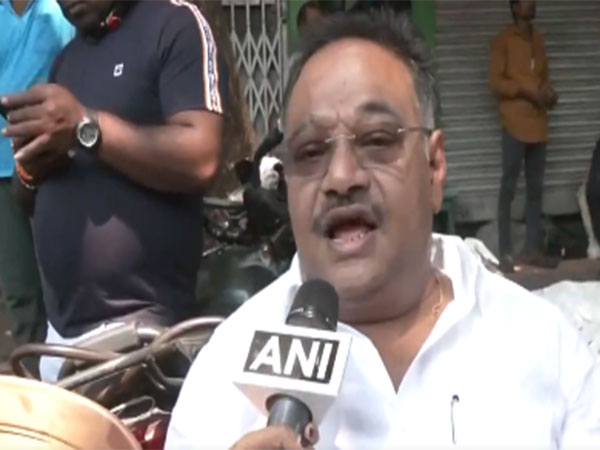Local communities show how to manage water supply in MP under Jal Jeevan Mission
Sep 05, 2020

New Delhi [India], September 5 : The local community in Kolar village of Umariya district in Madhya Pradesh has taken an active part in managing water supply under the Jal Jeevan Mission implemented by the Ministry of Jal Shakti in partnership with States.
This will show the way to other villages to come forward and manage their water resources as well as water supply on a sustainable basis.
This silent revolution happening in remote villages speaks volumes of the role of local community in effective natural resource management. The Jal Jeevan Mission is developing responsible leadership at the grass-root level.
Morning hours are a time for gratitude for Munni Devi, a resident of Kolar village. Her morning hours are busy like that of any other village woman, but she is particular about her prayer routine. The deck is ready for prayers, and soon her tiny house is filled with the fragrance of incense and fresh flowers, and as Munni Bai puts tilak on the 'tap', her head bows with thankfulness and devotion.
The decked up tap is no less than an idol of God to her as it brings water from the holy river Son, which is like a little Ganga for her. Earlier she used to travel 150 km to Amarkantak (the place of origin of the river) in a year or two for religious rituals but now the same river water post treatment is supplied to her through household tap connection.
The Jal Jeevan Mission implemented by Ministry of Jal Shakti in partnership with States aims to provide adequate drinking water of prescribed quality on regular and long-term basis to every rural household in the country by 2024.
In a bid to provide adequate drinking water to all rural households in the State, the Centre has allocated Rs 1,280 crore for the implementation of Jal Jeevan Mission (JJM) in Madhya Pradesh in 2020-21.
Out of 1.21 crore rural households in the State, 13.52 lakh have been provided tap connections, while the State government plans to provide tap water connections to 26.7 lakh homes in 2020-21. So far, 5.5 lakh tap connections have been provided.
Munni Bai's Kolar village has 271 households. Agriculture and animal husbandry are the main sources of livelihood in the village. The village has one Primary School and one Aaganwadi centre.
Earlier, main source of drinking water for the villagers was a tubewell and hand pumps, which usually went dry in summer season compounding the water woes of the villagers.
"Before this tap connection I had to bring water from a nearby well and during summer season I used to walk one or two kms in the scorching heat to fetch drinking water," said Munni Bai.
As a solution to water scarcity and to provide a sustainable drinking water scheme, MP Jal Nigam (MPJNM) executed a multi-village rural water supply scheme based on surface water sources. Madhya Pradesh Jal Nigam Maryadit (MPJNM) is implementing a multi-village water supply scheme (MVS) covering 19 villages of Manpur Block of Umariya district of Madhya Pradesh.
This MVS is providing treated drinking water for a population of 61,294 through tap water connections.
Entry point activities like Jan Sabha, Gram Sabha, street plays, school rallies organised by hiring services of NGOs as partnering bodies are mobilising the village communities for their active partnership.
















